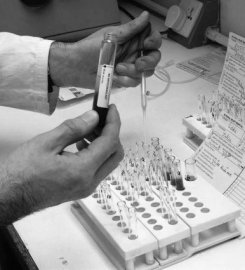

Home Page
The latest articles, features and news.


Read About...


Search Articles



Discussion Forums




|
| | |
|
7 March 2005
Obesity Hinders Detection Of Prostate Cancer
by George Atkinson  Research, published in the journal CANCER, suggests that obesity is associated with lower prostate specific antigen (PSA) levels in men, making the screening test less likely to produce reliable results. High PSA levels are an indicator of abnormal activity in the prostate but if these levels are lowered by other factors, prostate cancer may go undetected. The researchers found that as body mass index increased, PSA linearly decreased. This finding was consistent regardless of age and race.
Research, published in the journal CANCER, suggests that obesity is associated with lower prostate specific antigen (PSA) levels in men, making the screening test less likely to produce reliable results. High PSA levels are an indicator of abnormal activity in the prostate but if these levels are lowered by other factors, prostate cancer may go undetected. The researchers found that as body mass index increased, PSA linearly decreased. This finding was consistent regardless of age and race. Obesity, defined as a body mass index over 30, is a growing public health issue in developed nations. As well as diabetes, a study in 2003 added prostate cancer to the list of diseases linked to an unhealthy body weight. Now, it appears that even the detection of prostate cancer may be hampered by the subject's weight. In addtion to the increased risk of prostate cancer and the difficulty of detection, obese men with prostate cancer have higher mortality rates. The authors concluded that these findings may explain "the recent reports of inferior outcomes of prostate cancer treatment in obese men" in that they "may be caused by delayed detection" rather than biological differences in the tumor. The researchers believe that physicians should consider adjusting PSA values when screening for prostate cancer if men are overweight or obese. In related news, another study appearing in CANCER finds that men treated with hormone therapy for prostate cancer may experience temporary cognitive changes that can affect verbal fluency, visual recognition and visual memory. Men receiving androgen-deprivation therapy were found to have marginal but significant declines in visual memory of figures and recognition speed of numbers. The researchers believe the change in brain function is only temporary. Despite these "selective and marginal" changes associated with estradiol declines, "cognitive function appears to be well preserved during 12 months of androgen-deprivation therapy," they concluded.
|
|





